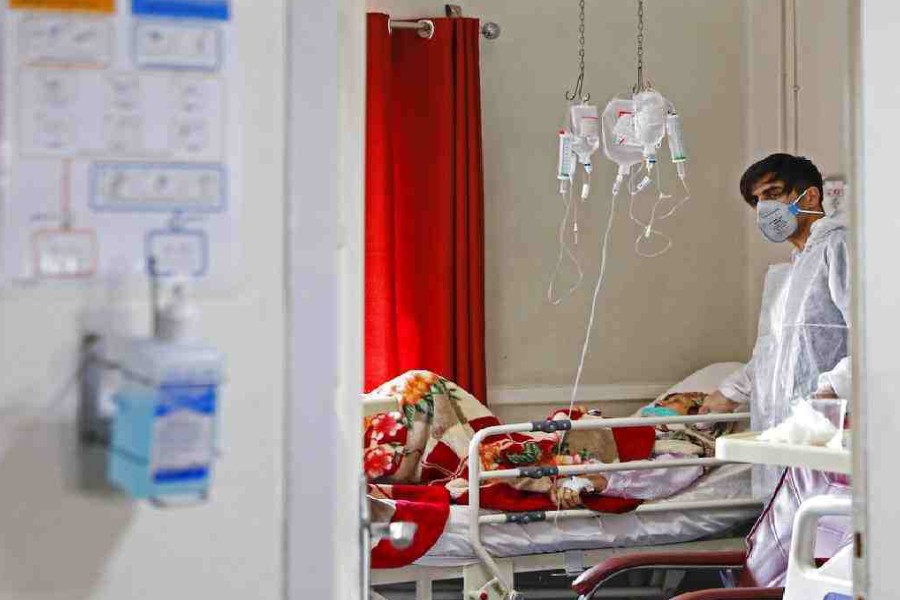Structural reform of the country's healthcare sector in addition to increasing the budgetary allocation is essential for its development, speakers said at an online event on Monday.
It is imperative to adopt smart diplomatic polices to collect anti-Covid jabs and other health provisions to vaccinate the majority of people within a quickest possible time which, they said, is also essential for the economy.
They came up with the views at an online press conference titled 'Budget 2021: Reviewing the Health Allocations' jointly organised by Bangladesh Health Watch (BHW) and Unnayan Shamannay, a non-government think tank.
Former governor of Bangladesh Bank and Unnayan Shamannay chairperson Prof Dr Atiur Rahman presented a keynote paper at the programme moderated by BHW convener Dr Mushtaque Raza Chowdhury.
A BHW member and country director of Population Council Dr Ubaidur Rob, former director of DGHS Dr AMM Zakir Hossain and president of Bangladesh Health Reporters Forum Toufiq Maruf spoke on the occasion.
Dr Atiur Rahman said policymakers have been rightly cautious about increasing the budget allocation for health considering the spending efficiency.
Yet they, budget planners, could have been a bit braver considering the current situation of the healthcare sector, he added.
"The key focus should be vaccinating 60-70 per cent of the population that is much more important than economic issues like GDP growth and deficit financing."
He opined that getting the vaccines in time will require smart diplomacy and support from international development partners.
Hailing the government's plan to support the private sector for establishing hospitals in backward regions by tax exemption for 10 years, the former central bank governor suggested exempting a portion of corporate tax for the banks and non-bank financial institutions who provide fund for such initiatives.
He also called for taking proper measures to implement the mid-term targets for the healthcare sector following the proposed budget.
"During the mid-term or Eighth Five Year Plan, there should be an aim to allocate 10-13 per cent of the budget for the health ministry," Dr Atiur said.
In the opening remarks, Dr Chowdhury said the share of health in the total budget has been hovering around 5 per cent that needs to be increased significantly.
"Despite some positive aspects of the budget, unfortunately we haven't seen anything to reform some fundamental issues of the healthcare sector in the proposed budget."
A significant amount of the money allocated for the healthcare sector remains unspent whereas the allocation is inadequate, he added.
He said, "We expected that the finance minister would highlight on the strategy to enhance the spending capacity for the healthcare sector."
Dr Ubaidur Rob said Bangladesh would require approximately US$1.5 billion to vaccinate the citizens adequately and the government can easily opt to take out a loan from the reserves without hurting the macro-economy.
Toufiq Maruf emphasized the need for implementation efficiency and called for restructuring of the system to avoid leakages and spillages.
"The healthcare sector lacks skilled human resource to prepare a suitable budget for the sector," he said explaining the reason for poor spending of the allocation in every fiscal year.


